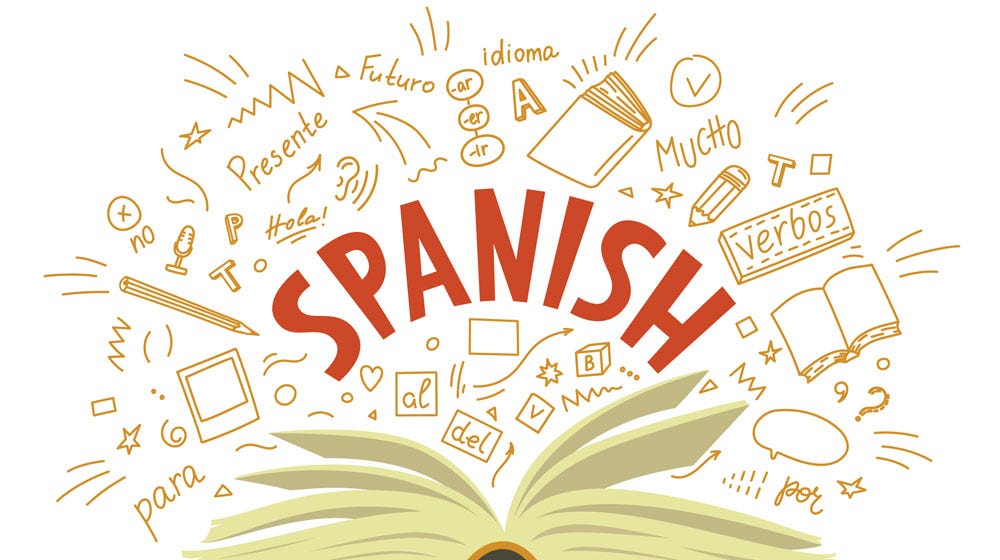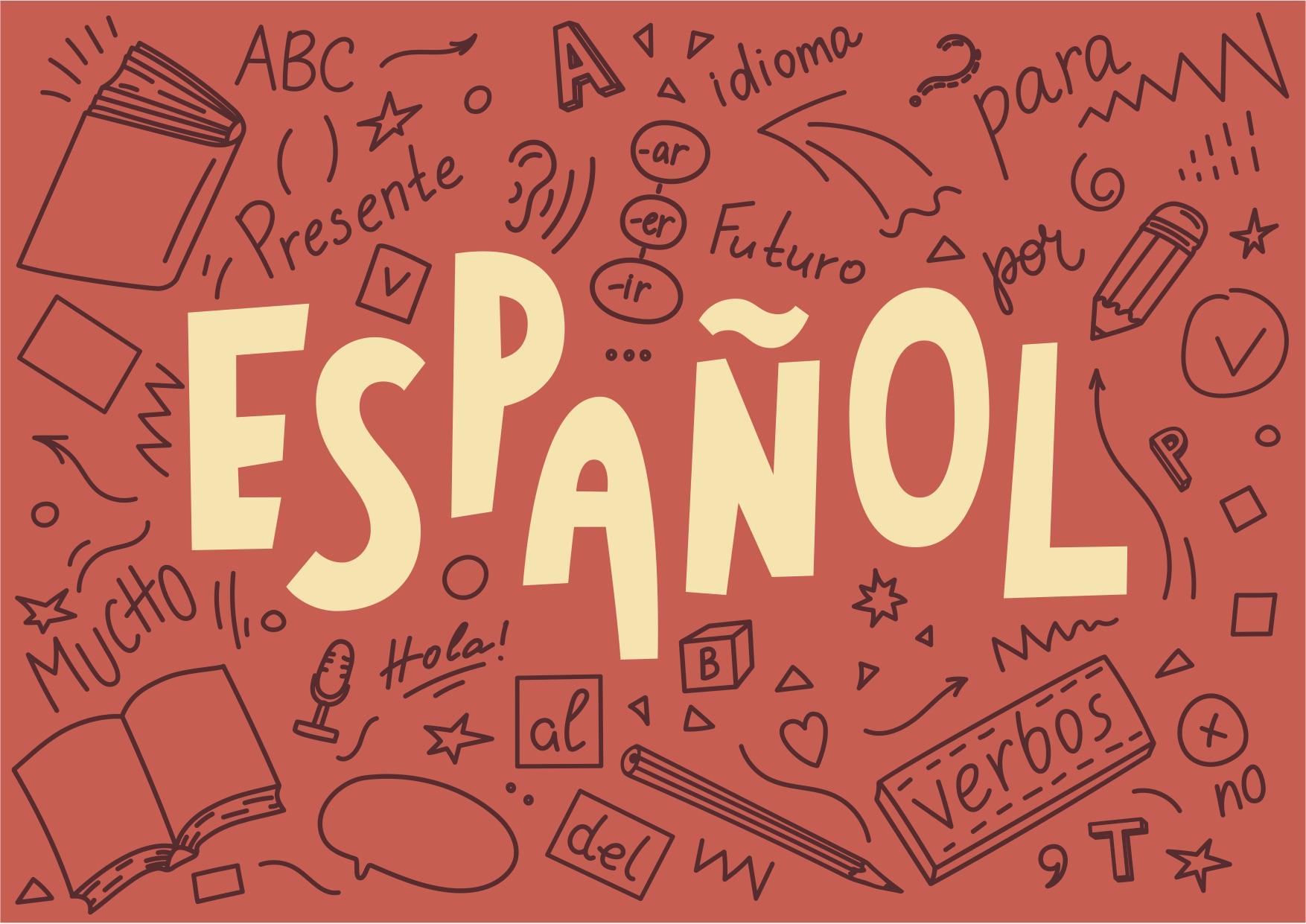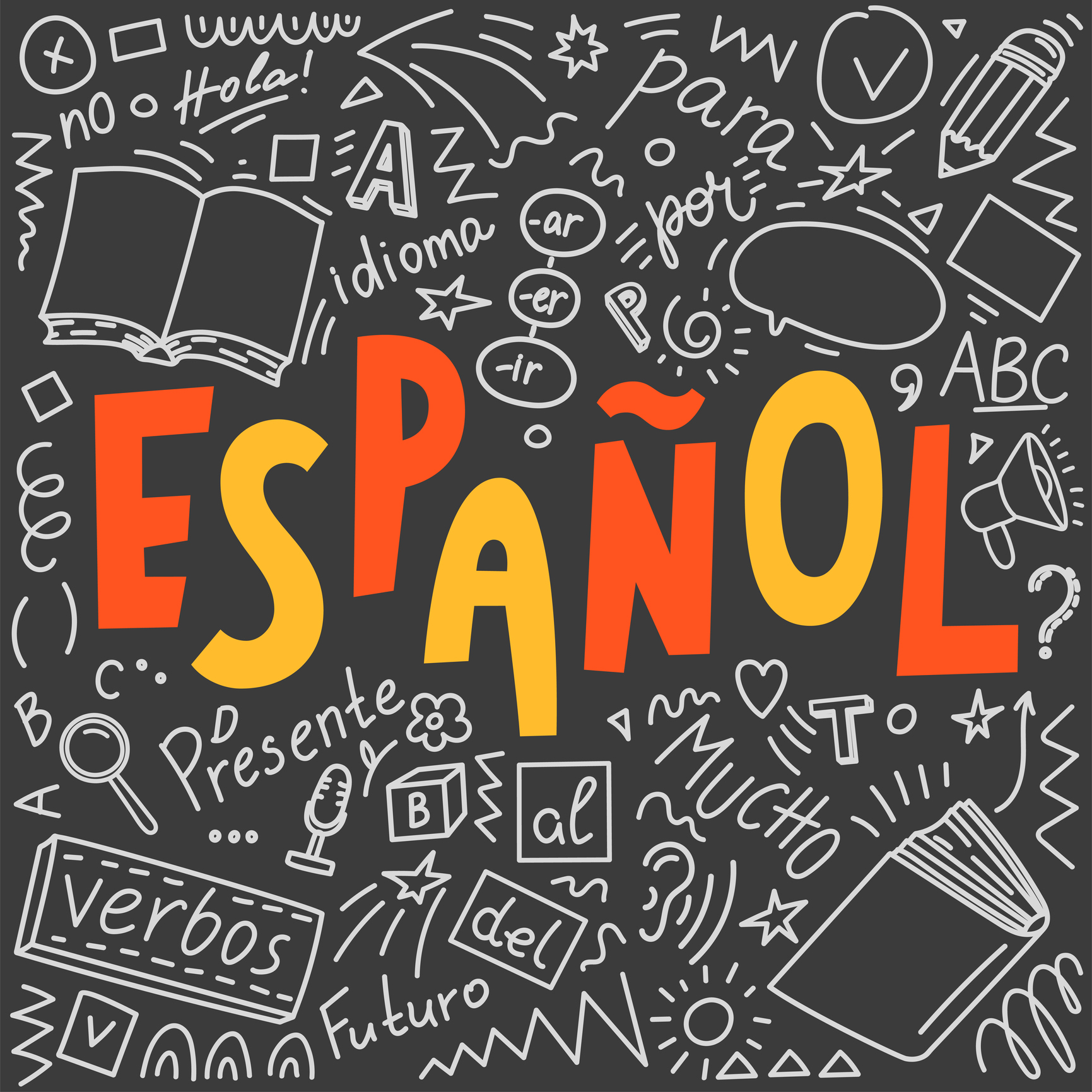Have you ever thought about how much power a few letters can hold in a language? It is truly something, you know, how often the smallest words carry some of the biggest ideas. In Spanish, words made of just four letters are pretty much everywhere. They show up in everyday conversations, in books, and even when you are trying to figure out a puzzle. They are like tiny keys that open up a lot of communication.
When you are getting to know Spanish, or even if you have been speaking it for some time, these short words are very helpful. They are often the ones you hear and use the most, more or less. Getting a good grasp on them can really make a difference in how well you understand what others are saying and how clearly you can share your own thoughts. It is about making your spoken Spanish feel more natural, you know, and just a little more flowing.
This discussion will look at these compact Spanish terms. We will explore what makes them so important for speaking and listening, and, in some respects, how you can get better at using them. From figuring out a crossword clue to just talking with someone, these words play a big part. We will talk about how they fit into the language and why knowing them can make your connection with Spanish feel a bit stronger.
Table of Contents
- What Makes Short Spanish Words So Useful?
- Finding Your Way Through Spanish 4 Letter Words
- How Do Crossword Puzzles Help with Spanish 4 Letter Words?
- Building Blocks - Why Are Spanish 4 Letter Words Important?
- Learning Tools for Spanish 4 Letter Words
- Can You Really Use Just Four Letters to Say So Much?
- Getting Started with Spanish 4 Letter Words
- What About Pronouncing Spanish 4 Letter Words?
What Makes Short Spanish Words So Useful?
It is interesting to think about how some of the most common words in Spanish have only a few letters. These short words are quite versatile, you know, showing up in all sorts of different conversations and written materials. They are like the glue that holds sentences together, or perhaps the small, sturdy bricks that form the base of a wall of words. Think about words like "casa," which means home, or "amor," which stands for a deep feeling of care. They are simple, yet they carry such clear and powerful ideas.
Their usefulness comes from their everyday presence. You will find them almost everywhere you look or listen in Spanish. They are not just for basic talk, either; they appear in more involved discussions too. Learning these words helps you, like, recognize patterns in how Spanish is put together. It makes it easier to follow along when someone is speaking quickly, or to read a passage without getting stuck on every other word. They are, in a way, fundamental for anyone wanting to speak Spanish more freely.
Knowing these short words also helps with building confidence. When you can quickly recall words like "perro" for dog or "gato" for cat, it makes speaking feel less like a chore and more like a natural chat. This confidence then helps you try out longer sentences and more complex thoughts. So, in some respects, these four-letter words are a starting point for bigger language goals. They are pretty much a solid foundation for your Spanish communication skills.
Finding Your Way Through Spanish 4 Letter Words
There are many ways to go about finding and getting to know Spanish 4 letter words. One common approach involves looking through lists that have been put together, you know, specifically for this purpose. These lists can be quite extensive, offering thousands of words for you to explore. For instance, some collections have over five thousand six hundred words that fit this short length, which is a lot to consider. It is like having a big collection of small, important pieces of a language.
You can often search for these words by different means. Some tools let you put in a sequence of letters, and they will show you all the Spanish 4 letter words that include those specific letters. This can be very handy if you are trying to remember a word but only recall part of it. Other methods let you click on a letter of the alphabet to see all the four-letter words that begin with that particular letter. This helps you, perhaps, explore vocabulary in a structured way, seeing how different sounds start various terms.
Another interesting way to get familiar with Spanish 4 letter words is through special groupings. For example, there are lists that focus on words with certain letter combinations, like those starting with "co" and having something before it. This kind of specific grouping helps you see how sounds and spellings work together in Spanish. It is a good way to see patterns and, in a way, get a feel for the rhythm of the language. These methods make finding and sorting through words quite manageable.
How Do Crossword Puzzles Help with Spanish 4 Letter Words?
Crossword puzzles are a really fun way to practice and learn Spanish 4 letter words. When you are trying to figure out a clue, like "Spanish for tall," and you know the answer needs to be four letters, it really makes you think. These puzzles often pull from common vocabulary, so the words you need to know are often those short, frequently used ones. It is a practical application of your word knowledge, you know, almost like a little test.
Many daily newspapers and larger publications, like the NY Times or the Telegraph, include crosswords that might have Spanish clues. Searching for answers to these clues, whether it is for "Spanish for tall" or some other word, helps you connect the meaning directly with the word itself. It is a bit like a game, but you are actually building your vocabulary as you play. This kind of active recall is very helpful for remembering words, too.
Using a crossword solver can also be a way to learn, even if you are not solving it completely on your own. When you look up a clue and see the four-letter answer, it reinforces the word in your mind. It is a good way to discover new Spanish 4 letter words you might not have come across otherwise. This makes learning feel less like work and more like a discovery, which is pretty much always a good thing when you are trying to pick up a new language.
Building Blocks - Why Are Spanish 4 Letter Words Important?
Spanish 4 letter words are, in essence, the foundational pieces of the language. They are the terms that appear over and over again in daily talk and in written materials. Consider words such as "pero," which means "but," or "vida," meaning "life." These are not just isolated words; they are crucial elements that help form more elaborate ideas and sentences. Without them, it would be quite hard to express even the simplest thoughts, you know.
Their importance stems from their consistent presence. They act as the core vocabulary that everyone uses, regardless of their fluency level. Knowing these words helps you understand the general drift of a conversation, even if you do not catch every single word. They provide a sort of anchor in the sea of spoken or written Spanish. This makes it easier to follow along and participate, which is, in some respects, what learning a language is all about.
For anyone starting out with Spanish, or even for those looking to improve, getting a solid grip on these words is very helpful. They are the terms that build a strong base for communication. Daily conversations, for example, rely heavily on this kind of essential vocabulary. So, getting familiar with these short words means you are building a robust structure for your language abilities, which is pretty much key to feeling comfortable speaking Spanish.
Learning Tools for Spanish 4 Letter Words
There are various ways to go about getting better at using Spanish 4 letter words, and many tools can help. One popular method involves using flashcards. Platforms like Quizlet, for instance, let you create or use existing sets of flashcards. You can practice words like "rama," meaning branch, "mar," meaning sea, or "nado," which is the first-person singular form of swimming. This repetition helps these words stick in your mind, you know, making recall quicker.
Another helpful tool involves searching for words that include specific letter sequences. If you are trying to remember a word that has "co" in it, for example, you can search for "co prev" to find words like "anco." This specific kind of search helps you connect parts of words to their full form and meaning. It is a good way to explore how different sounds and spellings come together in Spanish 4 letter words, too.
Interactive video lessons and expert articles can also be very useful. These resources often explain how to use the Spanish language in real situations. They might cover things like Spanish pronunciation, how to type Spanish accents, or the use of specific words like "para." These kinds of materials provide a deeper look at how words work in context, which can really help you understand the nuances of Spanish 4 letter words and how they fit into sentences.
Can You Really Use Just Four Letters to Say So Much?
It might seem surprising, but yes, you can actually express quite a lot with just four letters in Spanish. These short words are not just about basic objects or simple actions; they also carry diverse meanings and play important roles in communication. Take "casa" (house), "amor" (love), "perro" (dog), and "gato" (cat) as examples. These are common, everyday terms that help you talk about your surroundings, your feelings, and the creatures around you, you know.
The power of these words lies in their frequent appearance and their clear, direct meanings. They are like the essential building blocks that allow for quick and effective communication. They are not fancy or overly complex, which makes them very useful in fast-paced conversations. You will find them appearing frequently in almost every kind of written text as well, from simple notes to more formal documents, more or less.
Understanding the meanings and common uses of these Spanish 4 letter words is pretty much essential for basic fluency. They help you get the gist of what is being said and allow you to respond in a straightforward way. So, while they are small, their impact on your ability to communicate in Spanish is actually quite significant. They really are gateways to a richer way of experiencing the language, too.
Getting Started with Spanish 4 Letter Words
Beginning your exploration of Spanish 4 letter words is a very practical step for anyone wanting to improve their language skills. You can start by looking at comprehensive lists that collect all the words of this length. Some lists are quite extensive, containing thousands of entries, which gives you a lot to work with. It is a good way to see the sheer number of these small but important words that exist in the language, you know.
A simple way to begin is by focusing on words that start with a particular letter. For example, you might choose to explore the Spanish 4 letter words that begin with "a." This approach helps you organize your learning and makes the task feel a bit less overwhelming. You can then move on to words starting with "i," and so on, gradually building your vocabulary from different parts of the alphabet. This systematic way helps you cover a lot of ground, too.
Knowing basic Spanish 4 letter words helps you build a really solid base for understanding and communicating in many different situations. Since everyday conversations often rely on these essential terms, getting them down means you will be able to follow along and participate more easily. In fact, many of these short words are among the first ones people learn, and for good reason. They are fundamental, more or less, for just getting by and then for getting better.
What About Pronouncing Spanish 4 Letter Words?
When it comes to Spanish 4 letter words, getting the pronunciation right is very important for clear communication. The first step in this is to get a good handle on the general Spanish pronunciation rules. Unlike some other languages, Spanish sounds are pretty consistent. Once you learn how each letter or combination of letters sounds, you can apply that knowledge to almost any word, including these short ones, you know.
You should really try to master the sound of each letter in the Spanish alphabet. Each vowel, for instance, has a single, clear sound that does not change much. Consonants also have consistent sounds, though some might differ slightly depending on where they are in a word. Practicing these individual sounds will make pronouncing Spanish 4 letter words much simpler. It is about building muscle memory for your mouth and tongue, too, so the sounds come out naturally.
There are many resources available to help with pronunciation, such as audio guides or interactive lessons. Listening to native speakers say these words, and then trying to imitate them, is a very effective way to improve. Even for a short word like "rama" or "mar," getting the sounds correct makes a big difference in how well you are understood. So, paying attention to how these words sound is a key part of truly getting to know Spanish 4 letter words.
This article has looked at the role of Spanish 4 letter words, from their common use in daily talk and crosswords to their importance as building blocks for communication. We have seen how tools like lists and flashcards can help with learning, and why understanding their meanings and pronunciations is key for fluency. These short words are truly fundamental for anyone getting to grips with the Spanish language.
Related Resources:



Detail Author:
- Name : Juston Lubowitz
- Username : nkonopelski
- Email : fwiza@batz.com
- Birthdate : 2002-09-19
- Address : 8424 Rhea Branch New Telly, NJ 64603
- Phone : 305-272-7964
- Company : Stehr, Leffler and Labadie
- Job : Agricultural Science Technician
- Bio : Enim aut quis commodi quod fugiat et. Dolor iusto aliquid labore voluptas et inventore. Est laudantium praesentium cumque magnam culpa et quaerat soluta. Repellat adipisci perferendis nam cum.
Socials
facebook:
- url : https://facebook.com/katrina_kub
- username : katrina_kub
- bio : Dolores non architecto dolores eaque sit sint voluptatum.
- followers : 3924
- following : 1209
linkedin:
- url : https://linkedin.com/in/kub1976
- username : kub1976
- bio : Officiis aut similique eum omnis.
- followers : 4785
- following : 1619
tiktok:
- url : https://tiktok.com/@katrina3577
- username : katrina3577
- bio : Ipsam qui sit omnis iusto iusto.
- followers : 4132
- following : 924